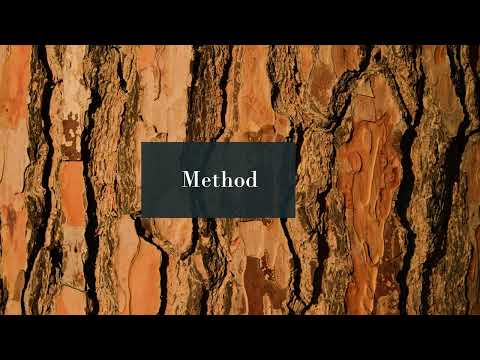 Speaker: David Hanauer
Speaker: David Hanauer
 Affiliation: University of Pennsylvania
Affiliation: University of Pennsylvania
Title: Poetry, Freewriting and the Self Discovery Process
Abstract (long version below): Traditional poetics attempts to elucidate how linguistic features of literary texts create certain effects in the reader. While this has led, through the ages, to an impressive arsenal of descriptive labels identifying phonetic, grammatical or semantic devices, relatively little has been done in terms of the psychological reality of the effects presumed. In this paper, we will demonstrate how emotional content of poetic texts may call forward emotional reactions opposite to what one may expect. We argue that a systematic investigation of the categories in traditional poetics should be undertaken: we propose to call this type of investigation PSYCHOPOETICS, the combination of poetics and psychology in the elucidation of literary functions.

 Long abstract
Long abstract
It is a common assumption that writing facilitates a process of self-discovery. But this assumption has only been studied to a limited extent. The aim of this study is to explore the process of self-discovery during the initial stages of two writing genres: autoethnographic poetry writing (Hanauer, 2010, 2020, 2021) and freewriting (Elbow, 1998, 2012; Rule, 2013). 117, L1 English speaking participants from 3 northwestern universities in the US completed a two-stage genre specific writing process. For poetry writers stage one consisted of an elicitation of a significant life moment task followed by a poetry revision task. For freewriters stage one consisted of a continual writing elicitation task for an everyday moment followed by a request for more continual writing. In a two time point comparative design, participants completed insight (Grant, Franklin & Langford, 2002) and emotional clarity (Gratz & Roemer, 2004) scales after stage one and stage two. Using a two-way repeated measures ANOVA with one between and one within subject variables, result revealed significant differences between the two writing processes in terms of self-discovery. The poetry writing process elicits significantly higher levels of response for insight and emotional clarity than freewriting and is characterized by an initial high-level response for insight in stage one and a significant decrease at stage two. Freewriting is characterized by low initial levels of emotional clarity followed by a significant increase at stage two. The results of these two processes are discussed in relation to Baijeen & Galbraith’s (2018) dual process model of discovery in writing. The process of self-discovery in poetry seems to be situated in the elicitation – knowledge constitutional stage – which is followed by a process of destrabilization of the insights that emerge. The freewriting process seems to be situated in a extended knowledge constitutional with the second stage of continual freewriting creating increased emotional understanding of ones experiences.
Baaijen, V.M., & Galbraith, D. (2018). Discovery Through Writing: Relationships with Writing Processes and Text Quality. Cognition and Instruction. DOI:10.1080/07370008.2018.1456431
Elbow, P. (1998). Writing with Power: Techniques for Mastering the Writing Process (2nd ed). Oxford: Oxford UP.
Elbow, P. (2012) Vernacular Excellence: What Speech can Bring to Writing. Oxford: Oxford UP.
Hanauer, D. (2021). Poetic Writing Research: The History, Methods, and Outcomes of Poetic (Auto)
Ethnography. In D. Kuiken & A. Jacobs (Ed.), Handbook of Empirical Literary Studies (pp. 421-448). Berlin, Boston: De Gruyter.
Hanauer, D.I. (2020). Writing Mourning: A Poetic Autoethnography on the Passing of My Father.
Qualitative Inquiry, 27 (1), 37-44.
Hanauer, D. (2010). Poetry as Research: Exploring Second Language Poetry Writing. Amsterdam: John Benjamins
Grant, A.M., Franklin, J. & Langford, P. (2002). The self-reflection and insight scale: A new measure of private self-consciousness. Social Behavior and Personality, 30(8), 821-836.
Gratz, K.L., & Roemer, L. (2004). Multidimensional Assessment of Emotion Regulation and Dysregulation: Development, Factor Structure, and Initial Validation of the Difficulties in Emotion Regulation Scale. Journal of Psychopathology and Behavioral Assessment, 26, 41-54.
Rule, H. (2013). The difficulties of thinking through freewriting. Composition Forum, 27, 1-18.

